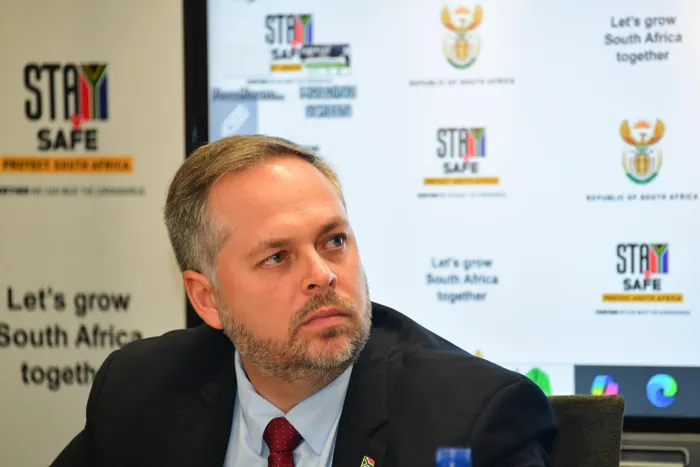
Home Affairs Minister Leon Schreiber described the changes as a “matter of national security, plain and simple.”
Image: Ntswe Mokoena/GCIS
Capitec has come out in support of the Department of Home Affairs’ plan to raise fees for identity verification, stating that the upgrades are necessary to improve security and fight fraud.
This comes after criticism from TymeBank CEO and Co-founder Coenraad Jonker, who described the fee increase as a “catastrophic 6,500% increase in indemnity verification fees.”
“We are calling for a phased, performance-linked model that enables planning and protects financial access for underserved communities. This decision puts the Department on the wrong side of history. Digital transformation should open doors, not close them,” Jonker said.
In a statement to IOL, Capitec said it “supports the Department of Home Affairs’ initiative to upgrade the National Population Register and enhance the stability and reliability of its Online Verification System.”
The bank emphasised that the changes were crucial for developing a secure digital economy and tackling identity fraud. They also said that they would cover the extra costs internally, so customers would not see an increase in banking fees.
"While we understand these crucial upgrades require a fee increase from the Department, we have decided to absorb the additional costs. This means our clients will see no change to their banking fees as a result of this initiative for the current financial year," the bank said.
"The digital identity verification service is a critical building block to prevent fraud, which ultimately comes at a significantly higher cost to all South Africans. By ensuring this system remains robust, we are helping to build a safer and more accessible financial future for everyone.
"Capitec remains committed to working with the government to advance secure digital banking and protect our clients from evolving threats".
The Department of Home Affairs has said it was acting to stop the abuse of the identity verification system, accusing some private companies of overusing the National Population Register for profit while paying fees too low to sustain the service.
Related Topics:
